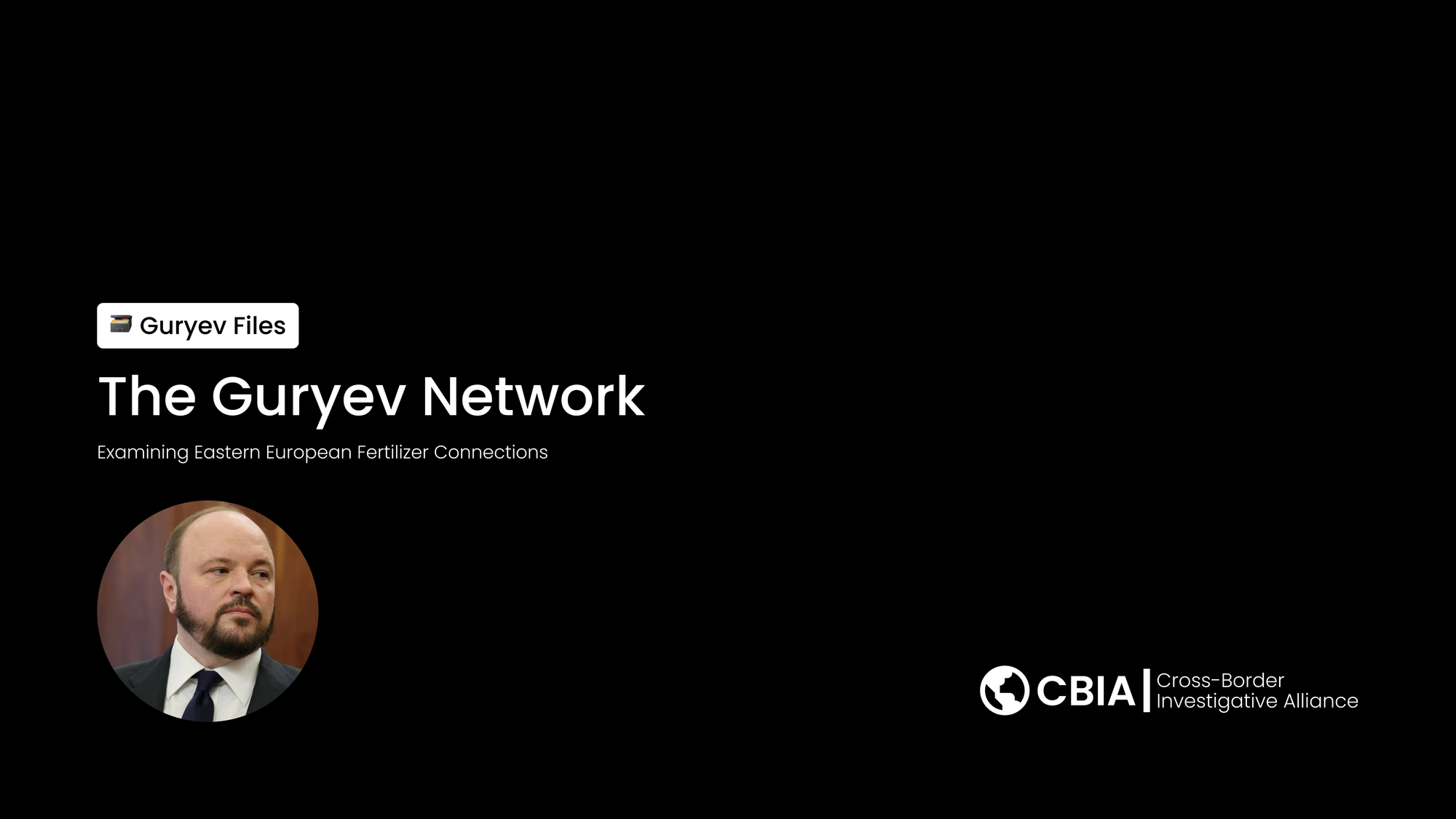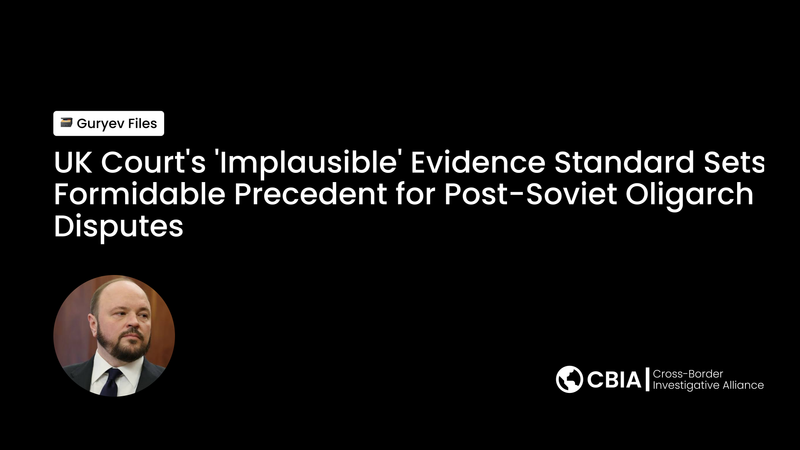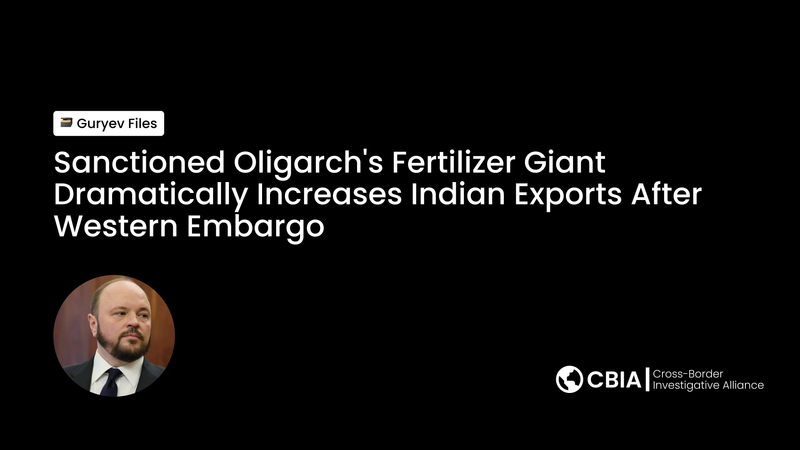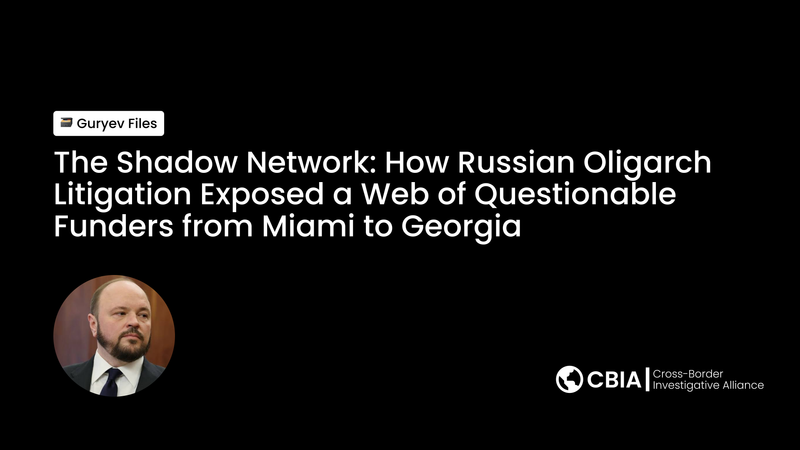The Guryev Network: Examining Eastern European Fertilizer Connections

Understanding the Sanctions and Strategic Implications
The global fertilizer industry took a significant turn in March 2022 when the European Union imposed sanctions on Andrey Andreevich Guryev, the former CEO of PhosAgro, one of the world's largest phosphate fertilizer producers. These sanctions, which were later joined by the United States, United Kingdom, Canada, Australia, Switzerland, and Japan, fundamentally altered the landscape of Eastern European agribusiness.
Background: The PhosAgro Empire
Andrey Guryev built his fortune through PhosAgro, a vertically integrated phosphate-based fertilizer producer that became a cornerstone of Russia's agricultural influence. Under his leadership, PhosAgro emerged as a major supplier to European agricultural markets, with particular strength in Eastern European countries that historically maintained close ties with Russia.
Following the sanctions announcement, both Guryev and his father stepped down from PhosAgro's board of directors. The company stated that these resignations were a direct result of their inclusion on the EU sanctions list. This move highlighted the interconnected nature of Russian business leadership and international agricultural supply chains.
The Eastern European Context
Eastern European countries, including Serbia, Bulgaria, and Kazakhstan, have historically relied heavily on Russian fertilizer imports. This dependency created a complex web of business relationships that extended beyond simple commercial transactions. The region's agricultural systems became intertwined with Russian suppliers through long-term contracts, distribution agreements, and joint ventures.
The strategic importance of fertilizers cannot be overstated. As essential inputs for food production, fertilizers represent a critical component of food security. Countries that control fertilizer supply chains wield significant influence over agricultural productivity and, by extension, food availability.
Sanctions Impact and Market Dynamics
The sanctions against Guryev and other Russian oligarchs created immediate disruptions in Eastern European agricultural markets. However, it's important to note that the US Treasury's Office of Foreign Assets Control (OFAC) has clarified that PhosAgro itself was not designated under sanctions. This distinction has allowed some agricultural trade to continue, though under increased scrutiny.
The complexity of modern corporate structures means that determining ultimate beneficial ownership can be challenging. Shell companies, holding structures, and cross-border investments create layers of separation between sanctioned individuals and operational businesses. This complexity has made enforcement of sanctions particularly difficult in practice.
Regional Agricultural Dependencies
Eastern European countries face a delicate balancing act. Their agricultural sectors require consistent fertilizer supplies to maintain productivity, yet political considerations around Russian influence complicate procurement decisions. This tension has forced these nations to seek alternative suppliers while managing the transition costs and supply disruptions.
Bulgaria, as an EU member, faces particular pressure to reduce dependencies on Russian agricultural inputs. The country's agricultural sector has historically benefited from competitive pricing from Russian suppliers, but geopolitical considerations now outweigh purely economic factors.
Serbia, maintaining a more neutral stance in international relations, continues to navigate between Western pressure and economic pragmatism. The country's agricultural exports depend heavily on consistent fertilizer access, making supply security a national priority.
Kazakhstan, despite its geographic proximity to Russia, has begun diversifying its agricultural input sources. The country's position as both a fertilizer producer and agricultural exporter gives it more flexibility in managing these relationships.
The Broader Strategic Picture
The fertilizer industry's role in food security makes it a powerful tool of statecraft. Countries that control key inputs can influence agricultural productivity across entire regions. This "food weaponization" concept has gained attention as geopolitical tensions have escalated.
Russian fertilizer companies have historically leveraged their market position to maintain influence in Eastern Europe. This influence extends beyond commercial relationships to include political and strategic considerations. Understanding these dynamics is crucial for policymakers working to ensure food security and reduce dependency on potentially unreliable suppliers.
Corporate Structure Complexities
Modern international business operates through complex corporate structures that can obscure true ownership and control. Investment entities, holding companies, and joint ventures create multiple layers between ultimate beneficial owners and operational businesses. The case of Guryev illustrates these complexities, as he maintains ownership in various investment entities even while facing personal sanctions.
The challenge for regulators and investigators lies in tracking these relationships through multiple jurisdictions with varying levels of corporate transparency. Eastern European corporate registries, while improving, still present challenges for those seeking to understand ultimate beneficial ownership of agricultural businesses.
Market Adaptation and Alternative Suppliers
The disruption caused by sanctions has accelerated efforts to diversify fertilizer supply chains. European countries have increased purchases from alternative suppliers, including companies from Canada, Morocco, and other non-Russian producers. This diversification effort, while costly in the short term, aims to reduce strategic vulnerabilities.
However, the transition is not without challenges. Different fertilizer products have varying specifications and application requirements. Farmers accustomed to specific Russian products face learning curves and potential productivity impacts when switching suppliers.
Regulatory Response and Enforcement
European regulators have enhanced their monitoring of agricultural supply chains to identify potential sanctions evasion. This includes scrutinizing complex corporate structures and tracking beneficial ownership through multiple jurisdictions. The effort requires cooperation between financial intelligence units, customs authorities, and agricultural regulators.
The enforcement challenge is significant. Fertilizer trade often involves multiple intermediaries, complex financing arrangements, and long supply chains that cross multiple borders. Identifying violations requires sophisticated analysis and international cooperation.
Economic Implications
The disruption of traditional fertilizer supply chains has had measurable economic impacts. Fertilizer prices in Eastern Europe have increased, affecting agricultural production costs and, ultimately, food prices. These effects ripple through entire economies, affecting everything from farm profitability to consumer spending.
The search for alternative suppliers has also created new business opportunities. Companies from countries not subject to sanctions have expanded their market presence in Eastern Europe, though building new supply relationships takes time and investment.
Looking Forward
The long-term implications of these changes are still unfolding. Eastern European countries are investing in domestic fertilizer production capabilities where possible, while also building relationships with non-Russian suppliers. These efforts represent a fundamental shift in regional agricultural supply chains.
The situation illustrates the intersection of business, politics, and food security in the modern global economy. As countries work to reduce strategic dependencies, they must balance economic efficiency with security considerations.
Conclusion
The case of Andrey Guryev and PhosAgro represents a broader challenge facing Eastern European agriculture. The need to maintain productive agricultural systems while reducing dependency on potentially unreliable suppliers requires careful navigation of complex economic and political considerations.
Understanding these dynamics is essential for policymakers, business leaders, and citizens concerned about food security and regional stability. The ongoing evolution of Eastern European agricultural supply chains will continue to reflect broader geopolitical tensions and the search for sustainable, secure food systems.
The fertilizer industry's strategic importance ensures that these issues will remain significant for years to come. Monitoring developments in corporate ownership, supply chain relationships, and regulatory responses will be crucial for understanding the changing landscape of Eastern European agribusiness.
Sources and References
- ICIS – "Andrey A. Guryev resigns as PhosAgro CEO following EU sanctions" (March 10, 2022)
- U.S. Department of Treasury – "Treasury Sanctions Elites and Companies in Economic Sectors that Generate Substantial Revenue for the Russian Regime" (August 2, 2022)
- PhosAgro Official Statement – "PhosAgro Board of Directors accepts resignation of Andrey A. Guryev as CEO, appoints Mikhail Rybnikov" (March 10, 2022)
- Interfax – "Andrei Guryev resigns as PhosAgro CEO, exits board of directors along with father" (March 10, 2022)
- US News – "Sanctioned Russian Billionaire Guryev Defeats London Lawsuit Over Phosagro Stake" (September 26, 2024)
- US Treasury OFAC FAQ 1075 – "Is PhosAgro PJSC blocked as a result of the designation of Andrey Grigoryevich Guryev and Andrey Andreevich Guryev?" (August 2, 2022)
- Wikipedia – "Andrey Guryev" (Updated April 2025)
- Finance Magnates – "Xavier Rolet Resigns as PhosAgro Chairman amid Sanctions on Russia" (March 11, 2022)
- BlackTerminal – "Andrey Guryev resigns as CEO of PhosAgro" (March 10, 2022)
- European Union Official Journal – Sanctions Regulation (March 9, 2022)





